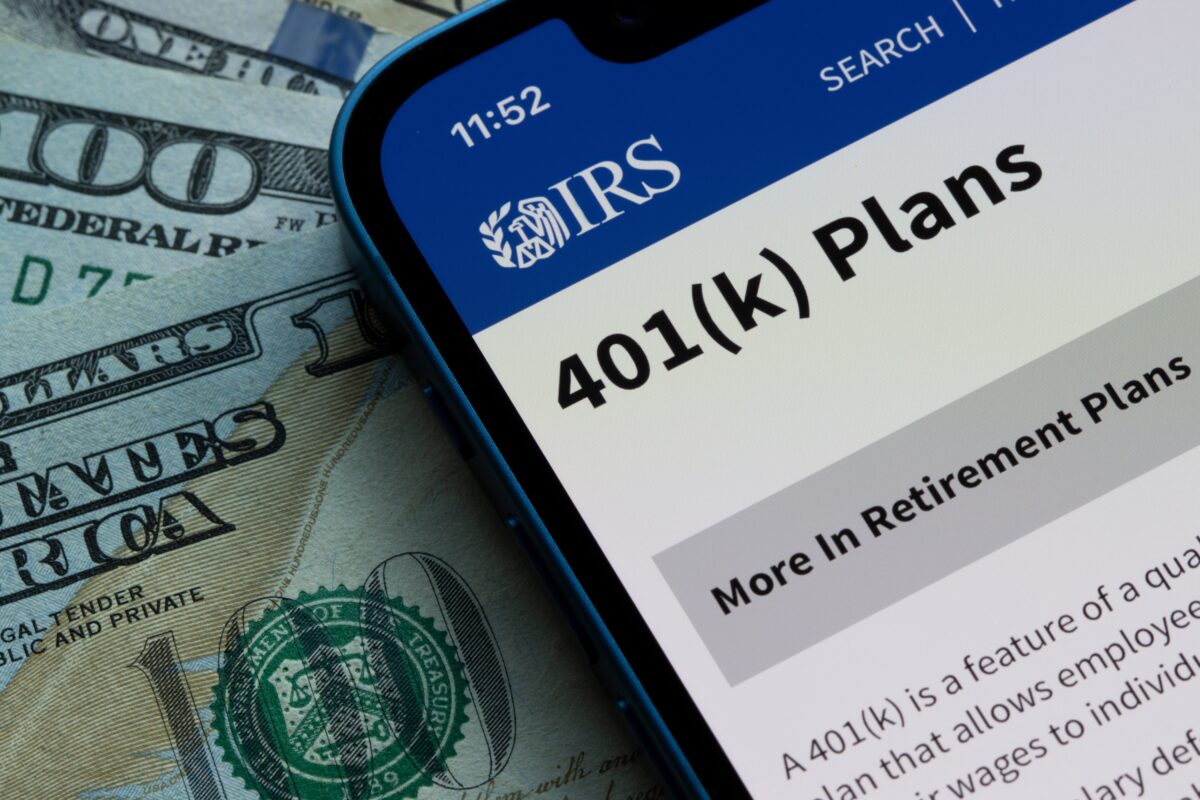Last resort or sensible option?
A 401(k) plan is a great place to borrow funds for a short-term emergency or a large purchase. However, there are pros and cons to doing so. And in some cases, there are risks.
What is a 401(k) loan?
A loan from your 401(k) is not a real loan. There is no lender and you don’t have to worry about your credit history. It’s simply an opportunity to access your retirement savings sooner. When you repay your loan, you will have restored your 401(k) plan to its previous state.
A 401(k) loan can be up to $50,000 or 50% of your acquired balance, whichever is lower. The interest rate is usually determined by the plan administrator, based on the prime rate.
When you borrow from your 401(k) plan, it is considered a short-term loan. It must generally be repaid, with interest, within five years. But since the interest technically goes from your pocket to your pocket, it ultimately costs you nothing. You own the principal and the interest.
The ability to borrow from your 401(k) depends on your plan administrator. Also, in some cases, you are not allowed to contribute to a 401(k) plan if you have an outstanding loan, which could hamper your retirement planning.
A 401(k) loan does not interfere with your credit score because you are borrowing from yourself, not from a lender. Therefore, if you are unable to repay the loan, it will not be reported to a credit reporting agency and will not affect your score.
Double taxation?
When considering a 401(k) loan, you may worry that the principal will be taxed and then taxed again on a later withdrawal. The problem is double taxation.
When you take out a loan from your 401(k), the principal is not taxed.
However, unlike 401(k) contributions, which are made with pre-tax dollars, 401(k) loan repayments are made with after-tax dollars. When you finally start receiving distributions from your 401(k), the interest paid will be taxed again. So, in this sense, a 401(k) loan involves double taxation.
However, if you compare a 401(k) loan to a conventional loan — which will also be repaid with after-tax dollars — you’ll still win because the interest you pay will go into your pocket, not someone else’s. ‘other.
The stock market could influence your 401(k) loan
During a bear market, there is an advantage to borrowing from a 401(k) plan. If you think the stock market is down, you will sell your assets at a low price to cover the loan. Then, in most cases, you’ll pay yourself back with a higher interest rate than your money would have earned. This will allow you to avoid any further investment loss on these assets. Meanwhile, it lets you use your money for short-term needs.
There are risks to borrowing from your 401(k) during a bull market. If you borrow when the bull is on and the market is strong, you could miss out on the gains that the money you borrow from your 401(k) could have made. And if your 401(k) includes high-interest options, the low interest rate you pay back to the fund may not compensate for your loss.
Sometimes borrowing from a 401(k) plan has a neutral effect on your 401(k) balance. This is because the interest you pay may be the same as what the stock market earns. Consequently, he could be a wash.
Who should benefit from a 401(k) loan?
You may want to borrow from your 401(k) plan if you need short-term cash. In other words, if you need money fast in the short term and you know you can pay it back within five years, this may be a good decision. Due to the lower interest rate of the 401(k) loan, it is cheaper than taking out a personal loan or even worse, a payday or pawnbroker.

401(k) Home Purchase Loans
Although the IRS requires 401(k) loans to be repaid with interest over five years, taking out a 401(k) to buy a home has different terms. The IRS allows a longer repayment when the loan is used for the purchase of a principal residence. However, the IRS does not designate the length of the clawback period. It depends on the plan administrator.
A 401(k) home purchase loan may offer a lower interest rate. In addition, the application process for a 401(k) loan is faster than that of a traditional loan.
Repayment of student loans and 401(k) loans
Many former students are burdened with large student loans. The average individual takes about 20 years to repay a student loan.
It can be tempting to borrow from your 401(k) to pay off your student loans quickly. However, the interest rate on US government-backed student loans is usually lower than that of a 401(k) loan.
It may be wiser to see if you qualify for a adjournment or abstention on your student loan, or apply for income-based repayment plan. A postponement or forbearance can last up to three years, although you may have to pay accrued interest.
When considering borrowing from your 401(k) for student loans, assess the payback period and interest rates. It might not be worth it.
Change or lose a job change loan
Changing or losing your job will affect your options for a 401(k) loan.
If you work, your 401(k) loan repayments are made through automatic payroll deductions. If you leave your job, whether it is a voluntary or involuntary move, you will be responsible for making these loan repayments yourself.
Also, if you have a 401(k) loan and then leave your current job, regardless of the circumstances, the repayment period will change. Under the Tax Cuts and Jobs Act 2017, you will now have until the next due date on your tax return to repay the loan.
If you do not repay the full balance on time, your loan will be considered an early withdrawal. The loan balance will be considered a taxable distribution, subject to taxes and penalties.
Can you borrow from an old 401(k)?
If you have a 401(k) from a previous employer, you won’t be able to borrow it unless you have incorporated it into your current 401(k) plan. As with any 401(k), you can withdraw funds from it, but you will have to pay federal and state taxes. There will also be financial penalties if you are under fifty-nine and a half. It will cost you.
In summary, a 401(k) loan can be a viable solution if you have a short-term need. But be aware of the benefits and risks. In particular, if you are considering quitting your job, you may want to make other arrangements.
The Epoch Times Copyright © 2022 The views and opinions expressed are solely those of the authors. They are intended for general informational purposes only and should not be construed or construed as a recommendation or solicitation. The Epoch Times does not provide investment, tax, legal, financial planning, estate planning, or other personal finance advice. Epoch Times assumes no responsibility for the accuracy or timeliness of the information provided.


Comments are closed.